20 Wonderful Web Personalization Tools for Merchants

Sometimes shoppers just want to go where everybody knows their names - and previous purchases, browsing habits, preferences, devices...
Seventy-five percent of consumers prefer that retailers use personal information to improve their shopping experience, which is why, despite an equally high percentage of consumers concerned about their privacy, personalization is a hot topic among Internet and brick-and-mortar retailers.
Personalization, for the purposes it is presented here, refers to individualizing shopping experiences by learning consumers' preferences and adapting brand experiences to their needs or interests. For retailers, these personalization tactics can lead to higher engagement, increased conversions, greater brand loyalty and the list goes on.
Thanks to emerging software solutions, ecommerce platform integrations and other personalization tools, there is an increasing number of ways to satisfy both consumers and a brand's bottom line by creating 1:1 marketing experiences. Twenty of these personalization solutions, techniques, tactics and ideas are addressed here.
1. Product Recommendations
Upselling, the act of encouraging customers to purchase additional (or sometimes higher-priced) items, can increase order values in both the real and digital worlds, create new purchase occasions and more. Myriad solutions are available to Internet retailers to recommend products to a website visitor, such as based on what is already in a consumer's shopping cart (e.g. complementary products), past purchases or even most-popular items. As an example, take a look at strands recommender.
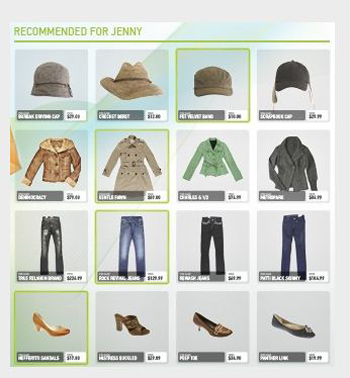
2. Personalized Search Results
Just like most people wouldn't say, "no" to a free lunch (assuming free, no-strings attached meals really exist), merchants can't resist a feature that moves consumers through their sites' sales funnels quicker. Personalized search may do just that. Adobe Target combines real-time intent expressed through current search and browser activity with insight from visitor profiles, to give online shoppers more personalized experiences than offered through conventional site-search technologies.
3. Social Login
Janrain. A key feature of Janrain is being able to link a user's multiple social identities to a single account, so merchants collect a richer set of profile data to leverage for personalization initiatives.
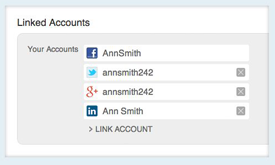
4. Retargeting
Savvy retailers leverage retargeting functionality to capture previous website visitors to bring them back to their sites. One way retargeting is successful is when the ads delivered to the visitors, who for whatever reason left a site, are personalized in some way. According to TellApart, personalized display ads yield the highest visitor response rates, often 10x greater than regular banner ads.
TellApart's personalization engine for ad creatives serves custom ads to shoppers and makes optimization decisions with every ad impression, and real-time product importing enables it to even work with retailers who sell hundreds of millions of unique products.
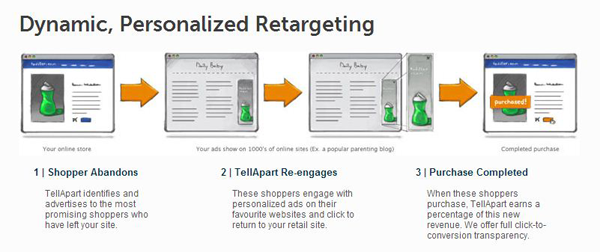
5. Personalized Sort
Shoppers interests and intents are different, so why would retailers display uniform product lists to all consumers? Personalized Sort from RichRelevance displays the best-matched products, personalized for each individual, based on past and current shopping behavior.
According to RichRelevance, this personalization increases product category and subcategory page conversion rates by ranking products that the shopper is most likely to buy while simultaneously listing a wide variety of products.
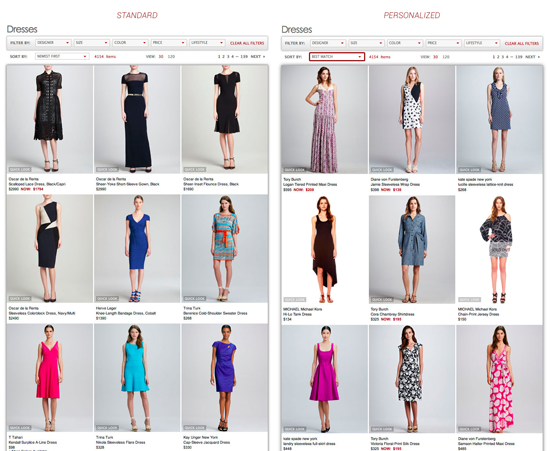
6. Guided Selling Tools
Engaging shoppers through product education and recommendations can increase buying confidence, boost conversions and leave consumers with a better perception of a brand. Brick-and-mortar retailers have used these practices long before the Web came to be, but digital guided selling tools create this experience online. iGoDigital, an ExactTarget company, offers three popular guided selling tools (interactive consulting tools, mobile guided selling apps and product advisors). Although they each have their own functionality, in summary, guided selling tools ask a series of questions, synthesize the responses and recommend products or deliver content that aligns with the answers.
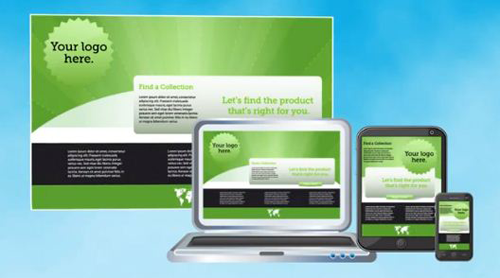
7. Triggered Emails
Delivering the right email, to the right person at the right time isn't an art nor a science. It's automation, folks. Companies like Certona can help brands leverage real-time website behavior, purchase history and catalog product profiles into their email communications to convert shoppers with emails containing personalized product recommendations, content and promotional offers - all automatically.
JangoMail can also help with its "Triggers" feature that enables its customers to send automated follow-up e-mail messages to their recipients who haven taken a particular action on a past email message (e.g. if a company sends an email about a new product, they can apply a "click" trigger, so if someone clicks to learn more about the product but doesn't purchase it, they'll receive a follow-up email from customer service one hour after the click asking if he or she needs help with the product). Triggers allow businesses to interact one-to-one with its email recipients on a highly personal level.
8. Behavioral Targeting
Personyze behavioral targeting and personalization enables site owners to personalize their websites to provide highly targeted content and design to maximize user experience and conversion rate. Personalization is based on visitors' demographics, characteristics, social profile, behavior in the website as well as, if needed, CRM data, which can be easily integrated into Personyze.
Here is an example. A returning customer is identified by Personyze, so the website display personalized versions of each page to the visitor in real time and:
1. Displays "Welcome Brian" instead of "Welcome guest".
2. Adds a top banner that offers product recommendations (iPod Touch) based on previous items viewed.
3. Adds a top banner that offers hot deals based on previous purchases.
4. Adds a banner in the right side with products that may be of interest for the visitor (iPhone 4), based on "other people who bought A, also bought B".
5. Displays a more relevant "Quick Help" banner on the right side based on previous purchases.
6. Display products that are relevant for Brian, based on his interests and previous purchases.
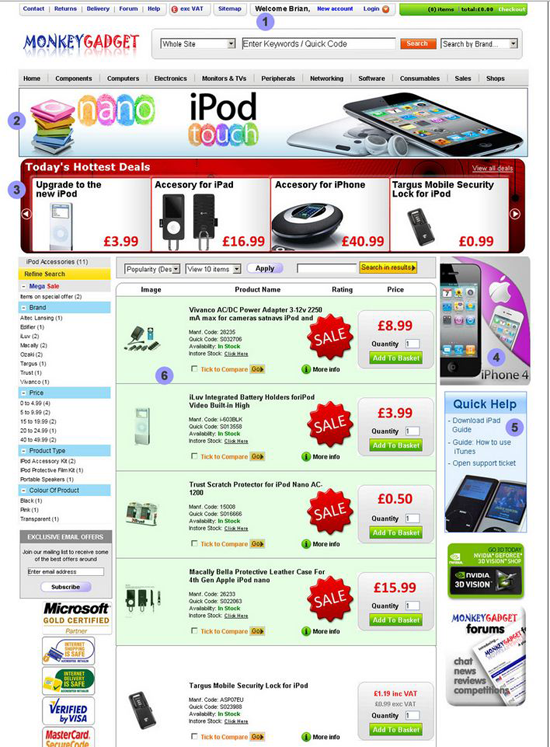
9. Live Chat
Fifty-seven percent of consumers believe that live help is among the most important features of a website, and there are easy ways to make the experience personal. The live context that live chat offers means companies can dynamically capture and pass the chatter's live context (online behavior, Web pages viewed, products in cart) and match it with live CRM data to shorten and personalize chat interactions, improve sales, and enable actionable reporting and analytics. Here is Oracle's multi-tabbed agent console integrates with third-party datasources to personalize the user experience and maximize agent productivity.
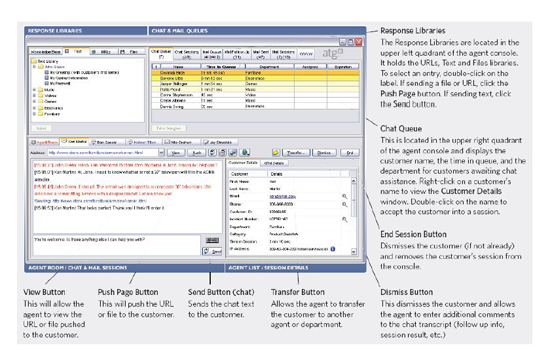
10. Weather-Based Triggers
Email Aptitude's EA Rainmaker technology, built for ecommerce retailers, enables marketers to create email triggers that will automatically deploy emails to customers in areas where a pre-defined weather condition/event is going to take place. Only customers living in a specific city where the determined campaign logic is set to occur will receive the email. How's that for personalized? And while this example may not come from EA Rainmaker, it shows how a merchant can leverage this technology. When it was 90-plus degrees in the Chicagoland area, this editor received an email, "It's a hot one, cool waters are calling - Save $1.50" from Huggies.
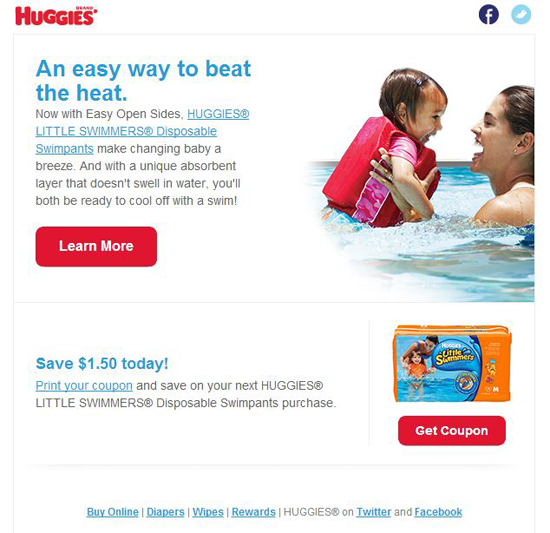
11. Real-Time Coupons
Online shoppers have a lot of baggage. They bring their own preferences, intentions and expectations to every website they visit, which is why merchants should treat them differently. The developers for the Personal Bar extension for Magento suggest to reward loyal customers with discount coupons to make them buy more, target new visitors with a personalized offer to increase order volume, automatically detect hesitating shoppers right before they bounce and proactively suggest to start a live chat session. The extension enables online retailers to display promotional messages with calls-to-action. For example, a merchant can easily set up seasonal holiday offers (e.g. Christmas sale), a daily deal or a flash sale and specify which type of shoppers will get it.
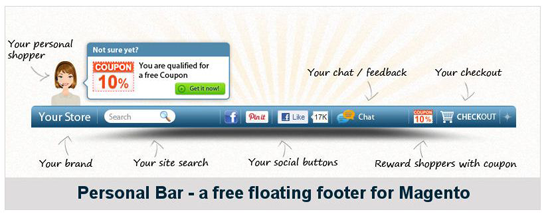
12. Single Sign On
Janrain's single sign-on (SSO) feature immediately signs in users as they browse between multiple Web properties, which enables participating websites to immediately utilize data for personalization. This feature also works with the aforementioned Janrain social login.
13. Gamification
Gamification makes the Internet more personal (and fun) by rewarding consumers (and in many cases, employees) for completing certain tasks (e.g. completing their profiles, making purchases or, in the employees' case, completing service tickets in a pre-set amount of time). BigDoor is one solution that helps brands engage their users to help them learn, personalize and customize their user experience. As gamification gets more advanced, marketers are able to target specific rewards to their customers based on their buying habits and demographic/psychographic information, resulting in higher customer satisfaction and engagement.
14. User-Preference Center
This idea might seem elementary, but how about we just ask consumers what they like and tailor experiences based on those preferences? Listrak's Magento extension offers a user-preference center so merchants can gather pertinent information on their subscriber bases so that targeted, relevant email messages can be sent leading to higher conversion rates.
15. Mobile (aka Local) Recommendations
You'd be hard pressed to find Chicago Cubs gear in a Target in San Diego, but walk into a Target in Chicago, and you'll have plenty of merchandise to choose from. This is because buyers for brick-and-mortar stores match their merchandise to the location; online retailers need to do the same (like yesterday).
Baynote software is one offering that delivers relevant products and offers that are adapted to a user's location, as needed.
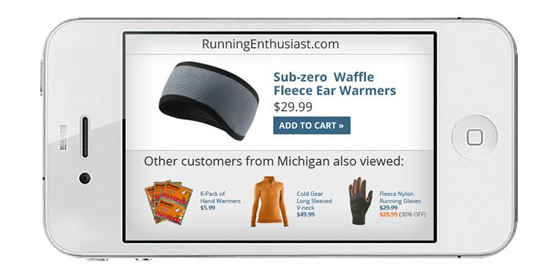
16. Near-Field Communications
Merchants with both Web and brick and mortar presences, may want to consider using a service like the Synqera Loyalty Generator, which leverages customer intelligence to engage consumers at the moment of store entrance by providing personalized communications that drive their shopping experience. For instance, retailers can offer shoppers in-store product discounts, third-party promotions, suggested items for purchase based on previous purchase decisions and personalized shopping lists.
The platform also allows retailers to reach customers outside the store with consistent relevant messaging: delivering personalized SMS, emails, mobile and website content. Confused about how it all works? Take a look at this Synqera Solution infographic.
17. Facial Recognition
Once testing and funding is complete (oh, that's all), businesses can send personalized deals to smartphones - all customers have to do is show their faces. Facedeals (no relation to Facebook) places facial recognition cameras at local businesses. These cameras recognize consumers' faces when they pass by and then checks them in at the location through their Facebook account. Simultaneously, their smartphones notify them of customized deals based on their Like histories. This enables companies to personalize their deals and track what customers respond to. Watch this Facedeals video to see what social media checkins may evolve to.
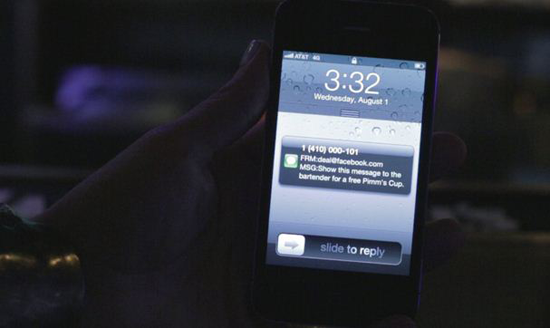
18. Virtual Fitting Rooms
How a clothing item will fit once it arrives on a shopper's doorstep is a big area of concern for both consumers and retailers. Shoppers don't want to go through the hassle of returning the item and retailers don't really want to take it. Clothes Horse could help. This virtual fitting room recommends sizes based on a shopper's body details and favorite clothes - right on a merchant's website. This individualized, data-driven approach empowers shoppers to make more confident purchase decisions. Retailers can use Clothes Horse to make more sales, take fewer returns, benefit from increased loyalty and, of course, offer more personalized shopping experiences.
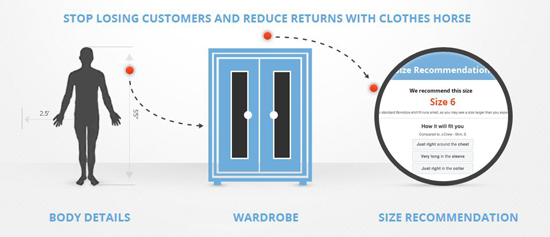
19. Landing Pages
Note to self: If a customer searches using Google for "marathon training" and clicks on your ad, the landing page they are sent to should have products based on that intent. Previously mentioned Baynote matches a user's search term to specific products based on learned affinities and dynamically creates a product landing page, including content and accessories to reduce bounce rate and increase conversions.
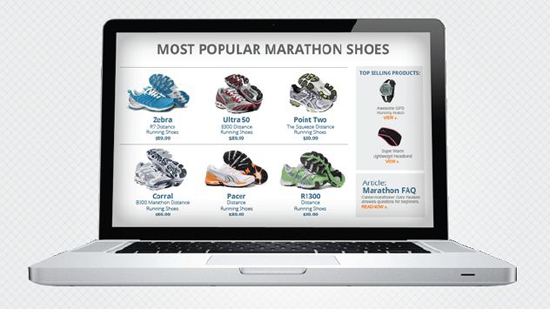
20. YOUR Personal Pick
Please tell us your favorite personalization tool, tactic or technique in the Comments section below.








